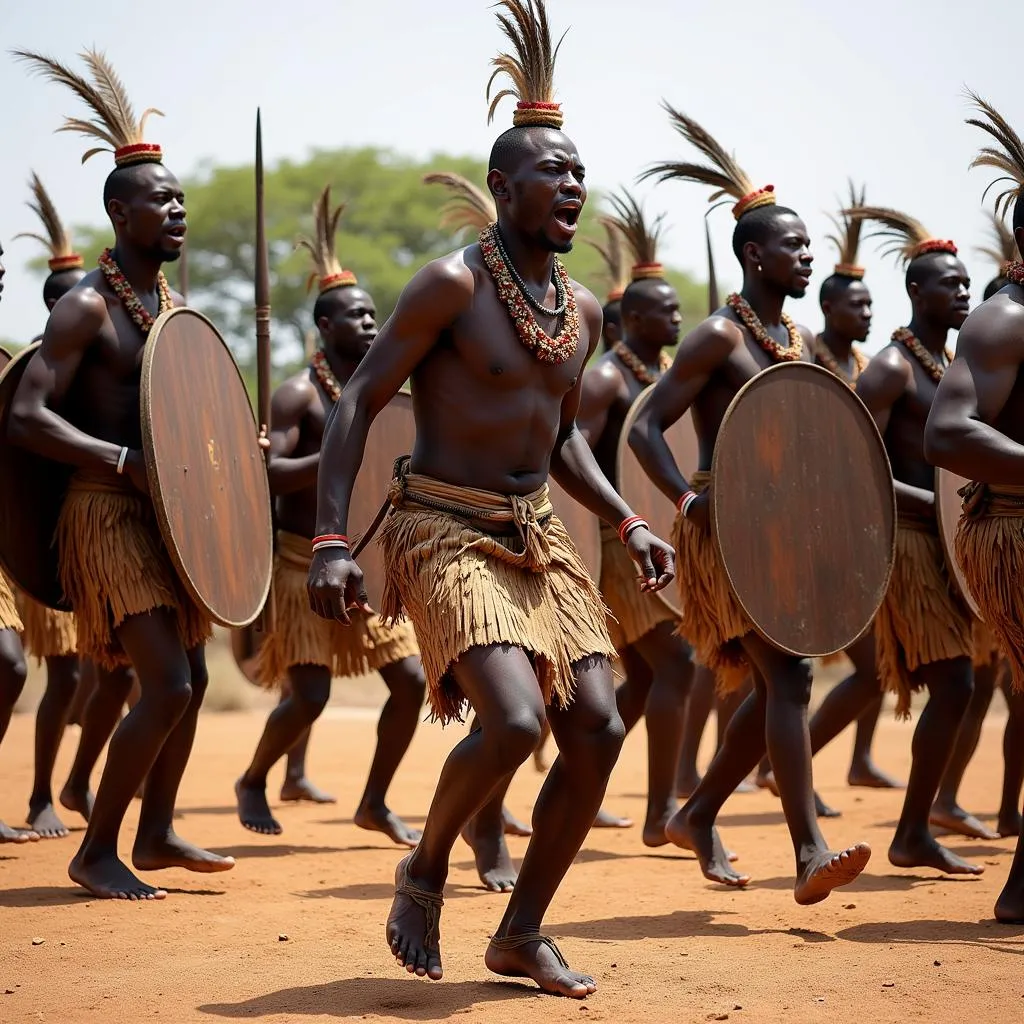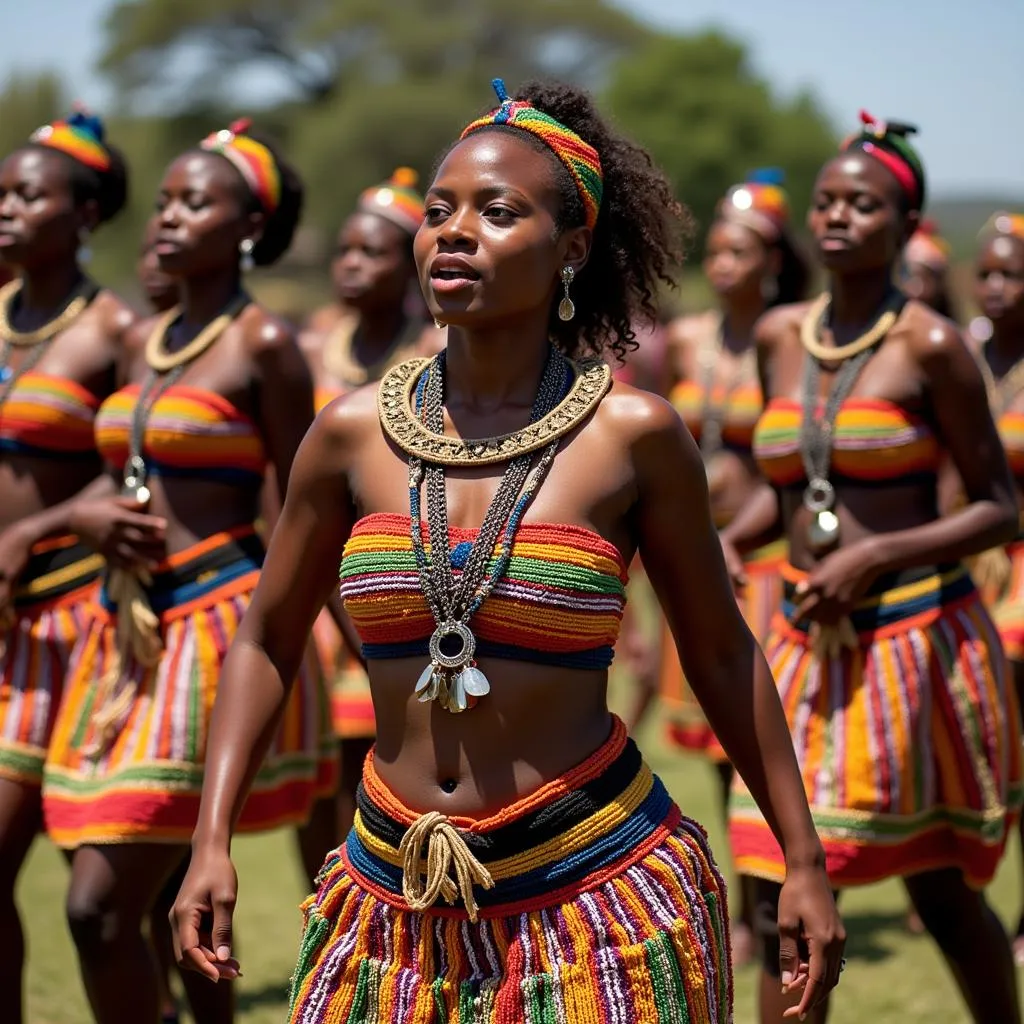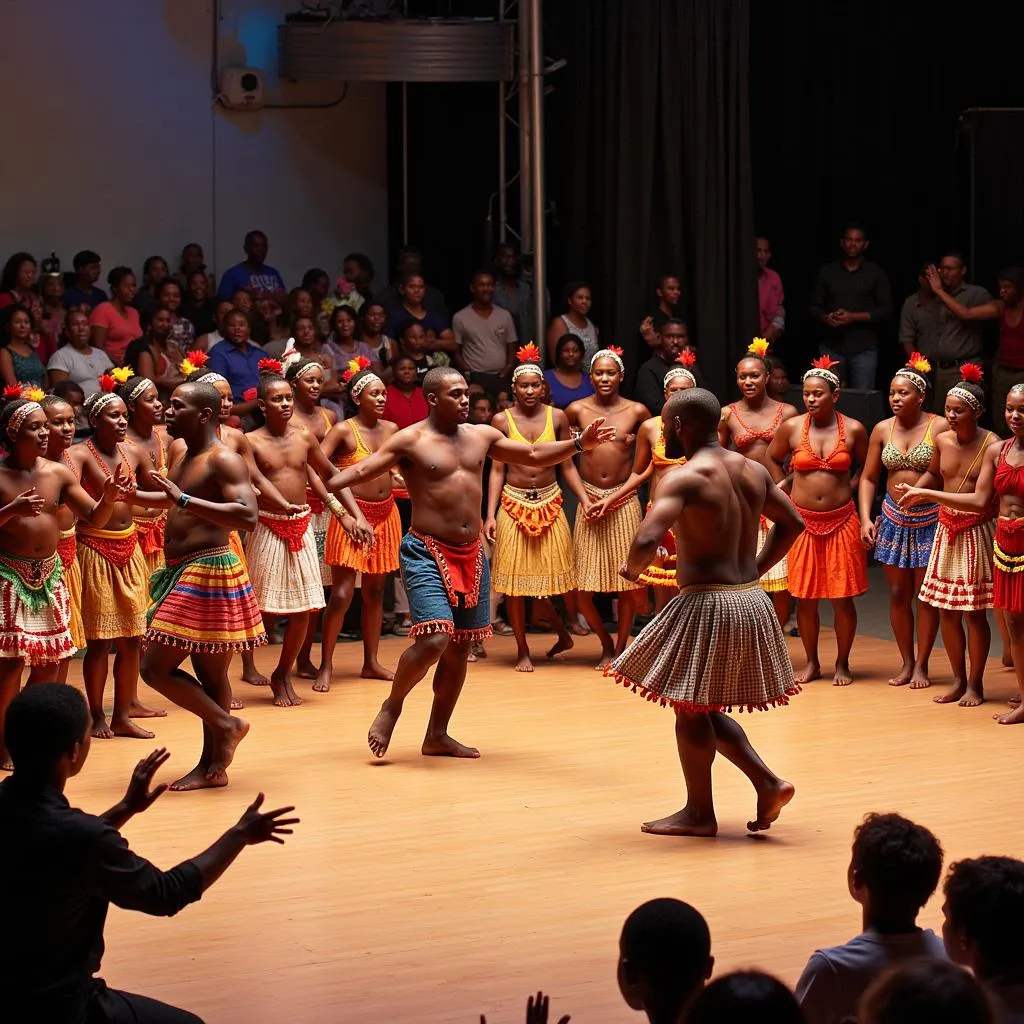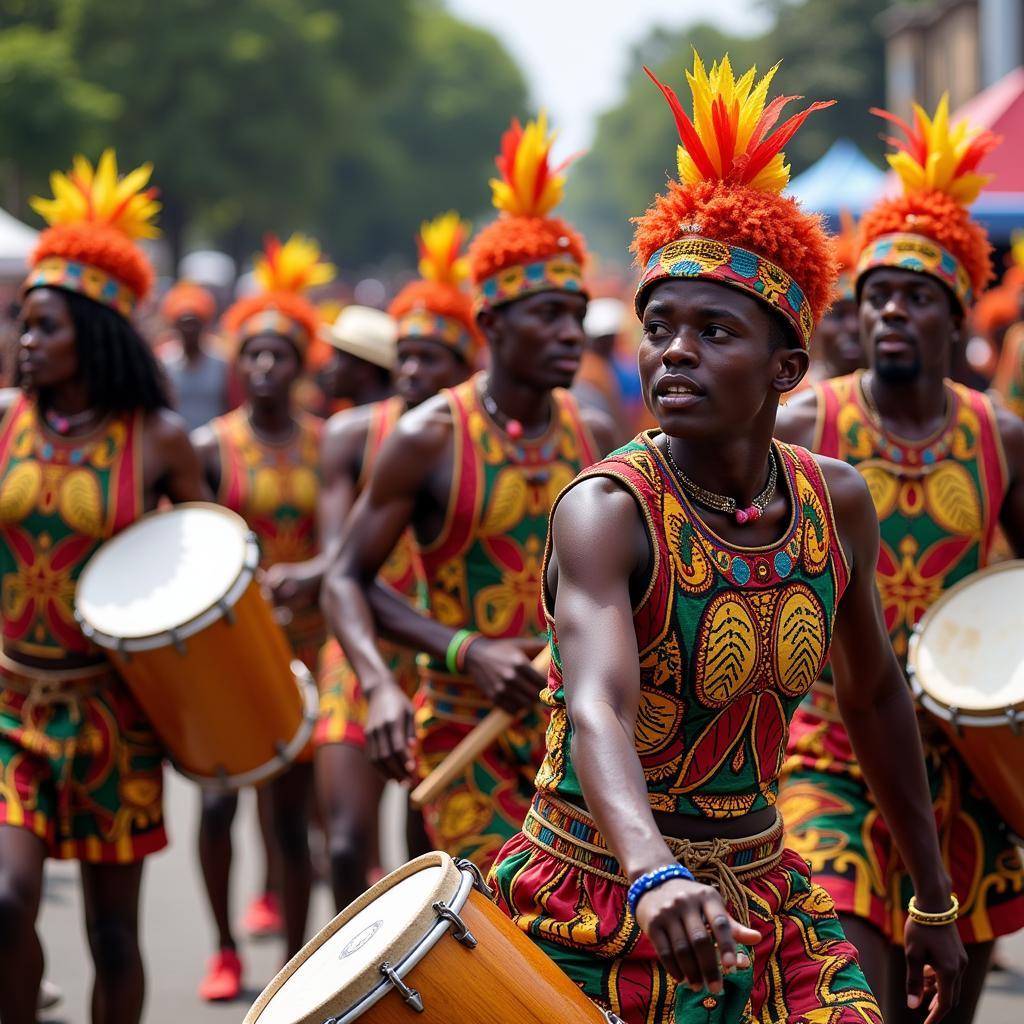The Power and Majesty of African Zulu Dance
African Zulu Dance is more than just rhythmic movement; it’s a vibrant expression of the Zulu people’s history, culture, and spirit. From its origins in ancient rituals to its modern-day adaptations, Zulu dance captivates audiences worldwide with its powerful energy, intricate choreography, and colorful costumes. This exploration delves into the origins, styles, significance, and enduring legacy of this captivating African dance form.
A Journey Through Time: The Origins of Zulu Dance
Zulu dance, known as Indlamu, finds its roots in the southeastern region of South Africa, where the Zulu people have resided for centuries. Historically, Indlamu served as a powerful tool for uniting warriors before battles, celebrating victories, and honoring ancestors. These dances, often performed by men, involved energetic footwork, rhythmic chanting, and the use of shields and spears, showcasing the tribe’s strength and unity.
 Zulu warriors performing Indlamu dance
Zulu warriors performing Indlamu dance
Over time, Zulu dance evolved beyond its martial origins, incorporating new styles and movements influenced by social gatherings, courtship rituals, and storytelling traditions. Women began to play a prominent role, developing their own distinctive dance forms characterized by graceful movements, elaborate beadwork, and rhythmic clapping.
A Kaleidoscope of Styles: Exploring the Diversity of Zulu Dance
Zulu dance is not a monolithic entity but rather a rich tapestry of diverse styles, each with its unique purpose, choreography, and attire. Some of the most prominent styles include:
- Indlamu: The most well-known Zulu dance style, Indlamu, is a high-energy warrior dance performed by men. Its distinctive feature is the ukugiya, a powerful kicking movement where the legs are lifted high in the air.
- Ingoma: Often performed alongside Indlamu, Ingoma is a war song characterized by its powerful vocals, rhythmic clapping, and the use of drums.
- Isicathamiya: This a capella singing style, which emerged in the early 20th century, blends Zulu harmonies with Western choral music.
- Ukusina: This graceful dance style is primarily performed by women. It features fluid movements, intricate footwork, and the use of traditional Zulu attire, such as beaded skirts and headbands.
 Zulu women performing Ukusina dance
Zulu women performing Ukusina dance
Each dance style reflects the diversity of Zulu culture, showcasing the creativity, artistry, and storytelling abilities of the people.
Beyond Entertainment: The Cultural Significance of Zulu Dance
Zulu dance is deeply intertwined with the cultural fabric of the Zulu people. It plays a vital role in:
- Preserving traditions: Zulu dance serves as a living archive of the tribe’s history, customs, and beliefs, passed down through generations.
- Fostering social cohesion: Dance performances bring communities together, fostering a sense of belonging and shared identity.
- Celebrating milestones: From birth to marriage to coming-of-age ceremonies, Zulu dance marks important life events.
- Connecting with the spiritual realm: Many Zulu dances are rooted in spirituality, with movements and rhythms designed to invoke ancestral spirits and connect with the divine.
Zulu Dance in the Modern World: A Legacy of Resilience and Evolution
Zulu dance has transcended geographical boundaries and cultural barriers, captivating audiences worldwide. From stage productions and films to music videos and cultural festivals, Zulu dance continues to evolve while maintaining its core traditions.
The influence of African costume can be seen in the vibrant and elaborate attire worn by Zulu dancers. From the animal skin skirts and feathered headdresses of the warriors to the beaded skirts and headbands of the women, each element of the costume holds cultural significance and adds to the visual spectacle of the dance.
 Zulu dance performance at a cultural festival
Zulu dance performance at a cultural festival
Zulu dance is a testament to the resilience and adaptability of African culture. It’s a vibrant and dynamic art form that continues to inspire, educate, and entertain, reminding the world of the rich heritage of the Zulu people.
Conclusion: The Enduring Power of Zulu Dance
African Zulu dance is a testament to the power of cultural expression. It’s a celebration of heritage, a display of artistry, and a testament to the indomitable spirit of the Zulu people. From its ancient roots to its modern-day interpretations, Zulu dance continues to captivate audiences worldwide, reminding us of the beauty and diversity of African culture.
FAQ:
- What is the significance of the Indlamu dance? The Indlamu is a powerful warrior dance performed by Zulu men, historically used to unite warriors before battles and celebrate victories.
- What are some of the distinctive features of Zulu dance costumes? Zulu dance costumes are vibrant and elaborate, often incorporating animal skins, feathers, beads, and intricate embroidery. They vary depending on the dance style and the gender of the dancers.
- How has Zulu dance evolved over time? Zulu dance has evolved from its martial origins to incorporate new styles and movements influenced by social gatherings, courtship rituals, and storytelling traditions. It has also adapted to modern contexts, appearing in stage productions, films, and cultural festivals.
- What is the role of women in Zulu dance? Women play a significant role in Zulu dance, with their own distinctive dance styles characterized by graceful movements, elaborate beadwork, and rhythmic clapping.
- Where can I experience Zulu dance? You can experience Zulu dance at cultural festivals in South Africa, as well as at performances by Zulu dance troupes around the world.
Other Resources:
- Learn more about African baby names that mean gift from god.
- Explore the beauty of Black African culture.
Need More Information?
For further assistance or information on African Zulu dance and other aspects of African culture, please contact us at:
- Phone: +255768904061
- Email: [email protected]
- Address: Mbarali DC Mawindi, Kangaga, Tanzania
Our team is available 24/7 to answer your queries and provide you with the information you need.



